Beijing
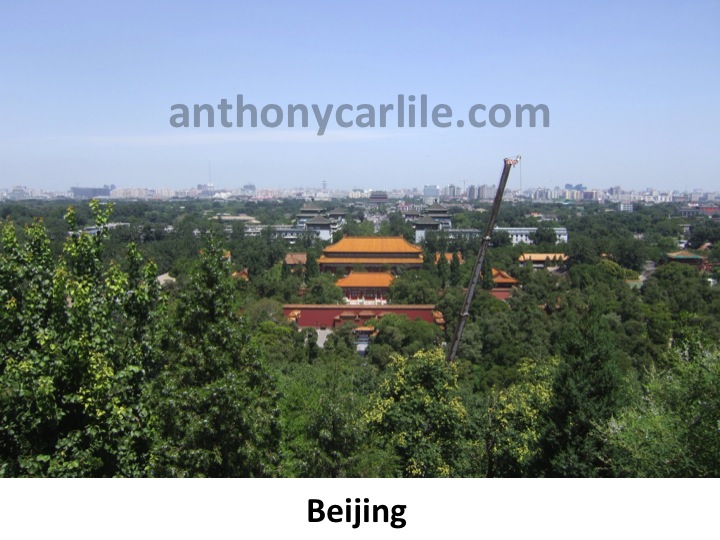
China's capital is a huge city filled with endless wonderful things to see. Here you will find a busy city full of culture, as you witness daily Beijingers going about their day. You will not get bored easily in Beijing, with 100s of temples and various other attractions to see, or by simply getting lost in one of the ancient Hu Tongs.
Forbidden City
I can't think of a single place in the world which has been the scene for more films than the Forbidden City. It feels like every film set in ancient China uses this incredible place as a royal palace, and as soon as you visit you will see why.

Entrance to the Forbidden City
You will be greeted at the entrance by a portrait of Chairman Mao - probably the most famous portrait of his in the city. You could also be greeted by a very long queue, so go early to avoid waiting.
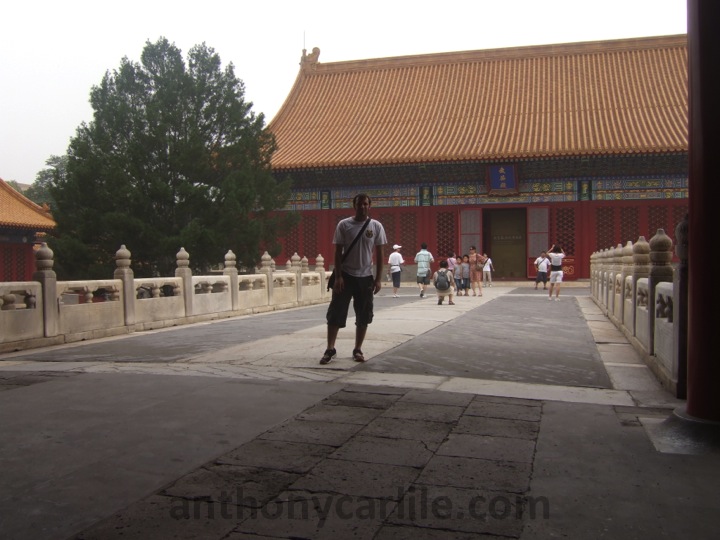
Me inside the Forbidden City

Forbidden City

Me in the Forbidden City
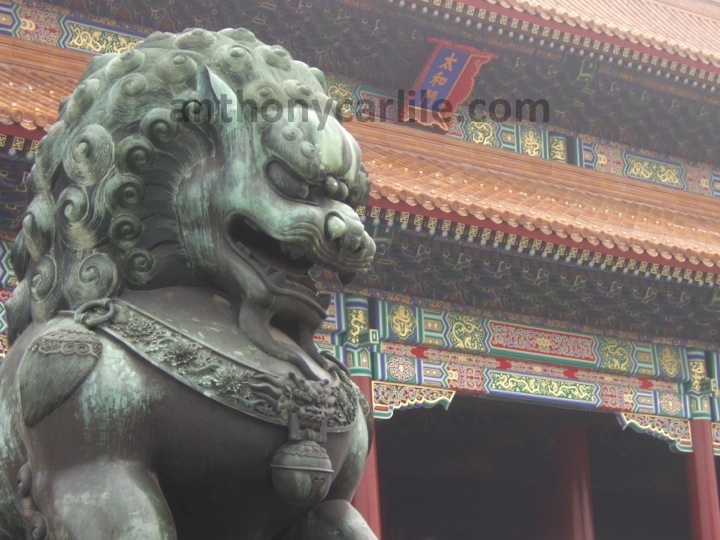
Forbidden City
The Olympic Park
The Beijing Olympic Park was the site of the 2008 Olympics, and has 2 incredibly iconic buildings as its legacy - The Birds Nest (which was used for the athletics) and The Watercube (which was used for the swimming). The park still gets tens of thousands a visitors a day.
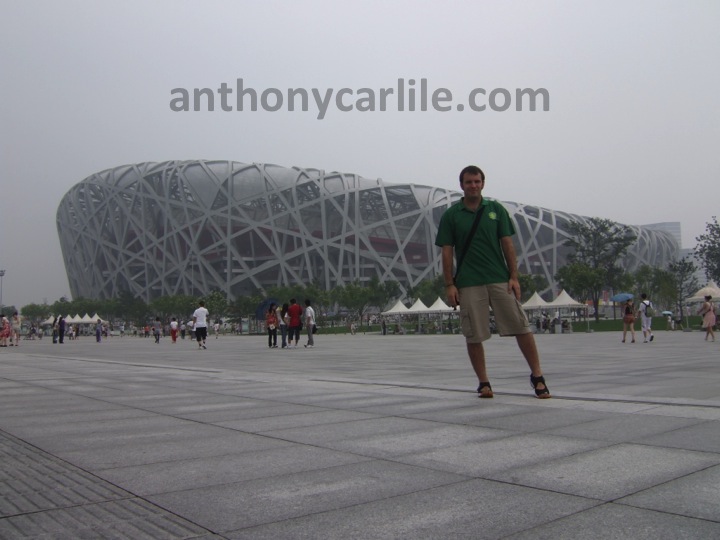
The Birds Nest is still used as a sports arena, and you can get a guided tour of the stadium on most days of the year.

The Birds Nest

The Birds Nest at Night

The Birds Nest at Night
The Water Cube was used for the swimming events in the 2008 Olympics, but has now been divided into 2 distinct attractions: a swimming pool and a water park.

Water Cube at Night

Water Cube at Night
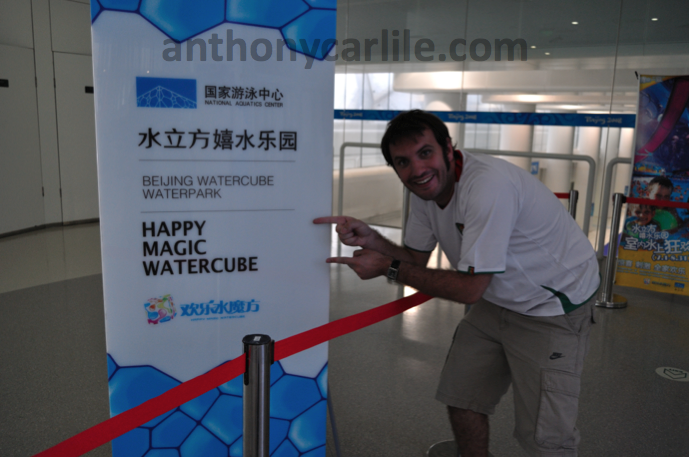
Entrance to the water park
The water park is a popular attraction in Beijing. It has 4 or 5 rides that are suitable for adults, and many more suitable for children, meaning that even if you don't have kids you can still go and have fun!

The Water Cube
Tiananmen Square
Made infamous by political unrest in the 1980s, Tiananmen Square is a fascinating place to visit in the centre of Beijing.

Tiananmen Square

Armies of tourists at Tiananmen Square
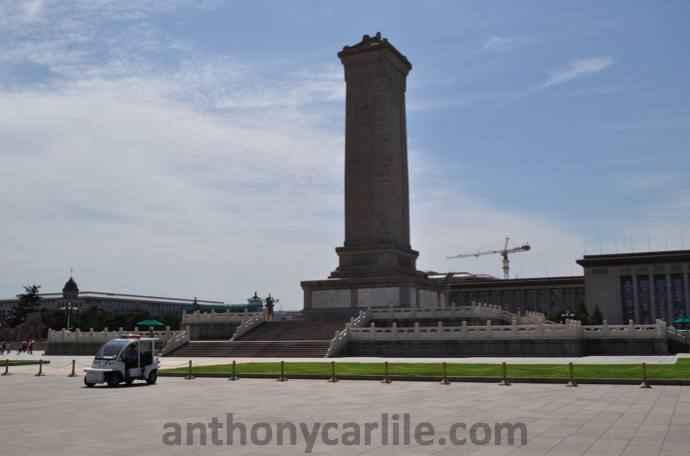
Tiananmen Square
Jingshan Park
Jingshan Parl is a beautiful large park in the centre of the chaos of Beijing, offering green surroundings, shade, as well as peace and quiet.

Jingshan Park

Jingshan Park
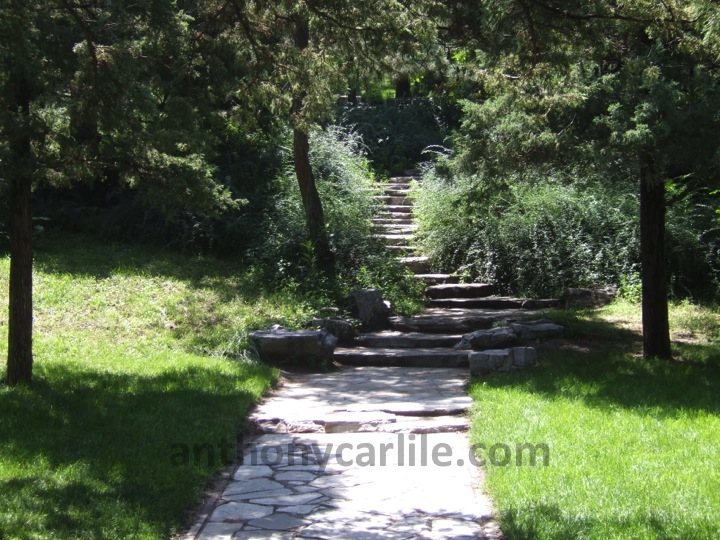
Jingshan Park
If you follow the stairs in the picture above you end up on a wonderful viewing platform where you can see a large part of the city, and where you are looking over the entire Forbidden City.

Viewing Platform Area

The View of The Forbidden City
The Lama Temple
Beijing has countless temples, and The Lama Temple is probably the largest and most famous. If you have limited time in Beijing, or if you only want to see one or 2 temples whilst you are there, then I would definitely recommend The Lama Temple as a place to visit.
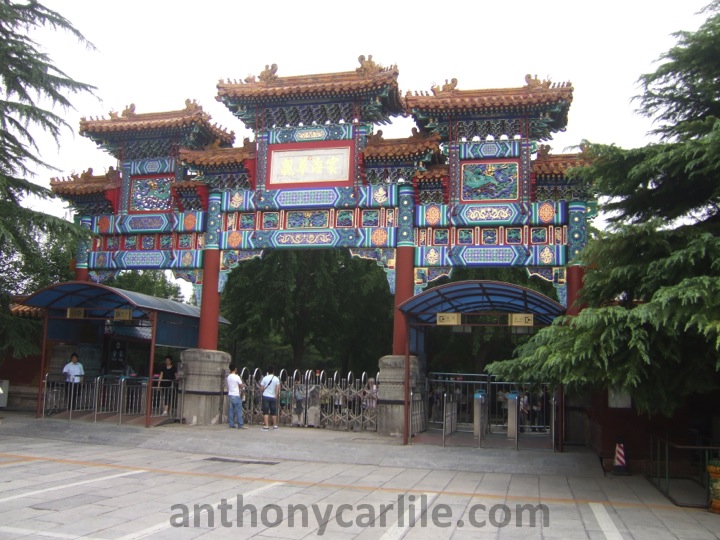
Entrance to The Lama Temple
Burning incense is a very popular ritual in Buddhism, and at The Lama Temple you will see 1000's of people every day doing this ancient past time.
The streets around The Lama Temple are filled with stores selling incense, so if you wish you can join in with this process.
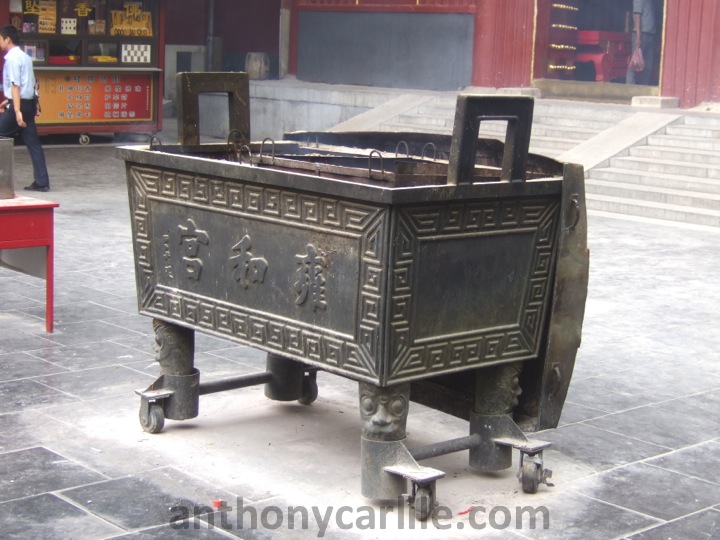
Burning Incense at The Lama Temple

Me at The Lama Temple

Lama Temple
Hou Hai Park
Here you will find another oasis in the middle of the usually hot and dry Beijing. Hoi Hai Park offers a large lake, restaurants and a big shopping area.
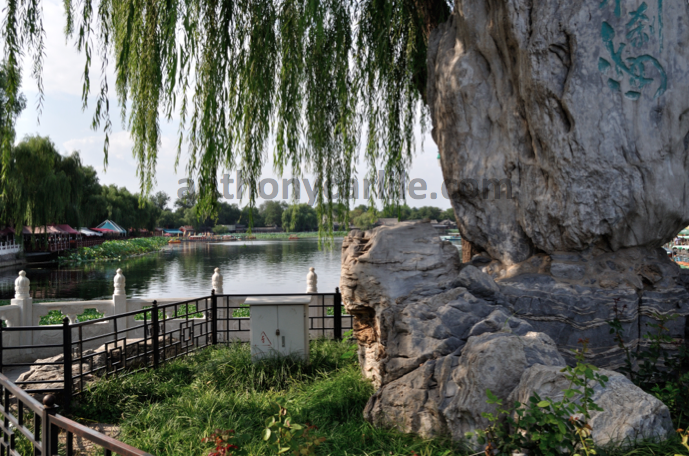
Hou Hai Park Lake

Hou Hai Park Lake

On a Peddle Boat on Hou Hai Lake
One of the main attractions is to hire a boat (electric or peddle powered) and ride on the lake. This is inexpensive and great fun. The lake is very large, but can still be very crowded at peak times of the year.

Hou Hai at Night
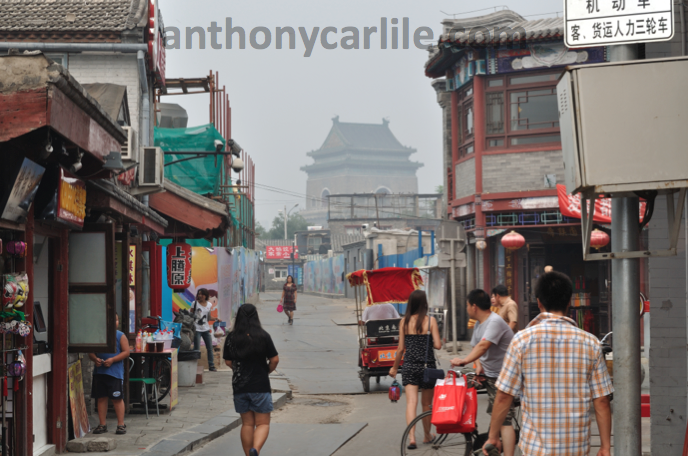
Shopping Area at Hou Hai

Hou Hai Lake
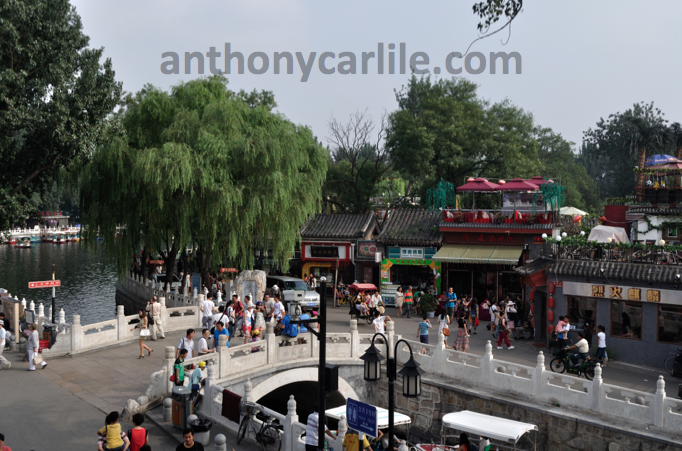
Hou Hai
Temple of Bells
This temple is more of a museum, with 100s of bells dating back from 100s to 1000s of years. It is not the biggest temple in Beijing, but it is charming and also not as busy with tourists, meaning you get to walk around a temple in Beijing with a little bit of space - something which is hard to find in Beijing!

Temple of Bells
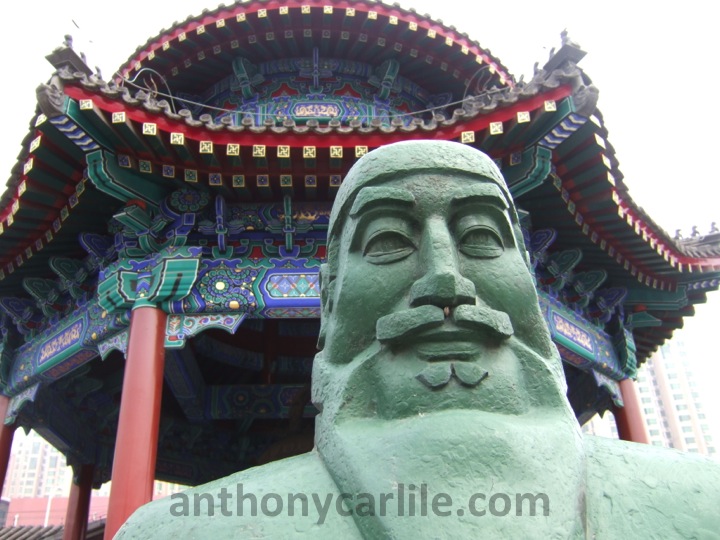
Temple of Bells

The Entrance to the Temple of Bells
The City Wall
Built in the 1300s, the city wall fortifications are still in good condition and offer those visiting Beijing something different to visit other than temples.
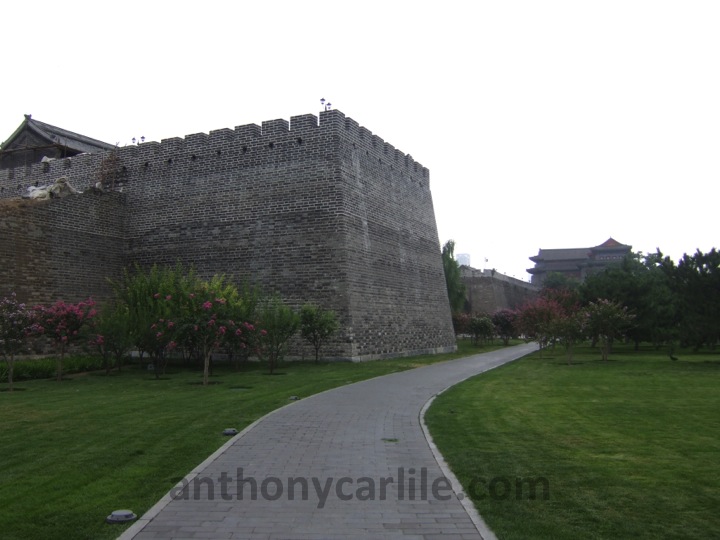
The City Wall
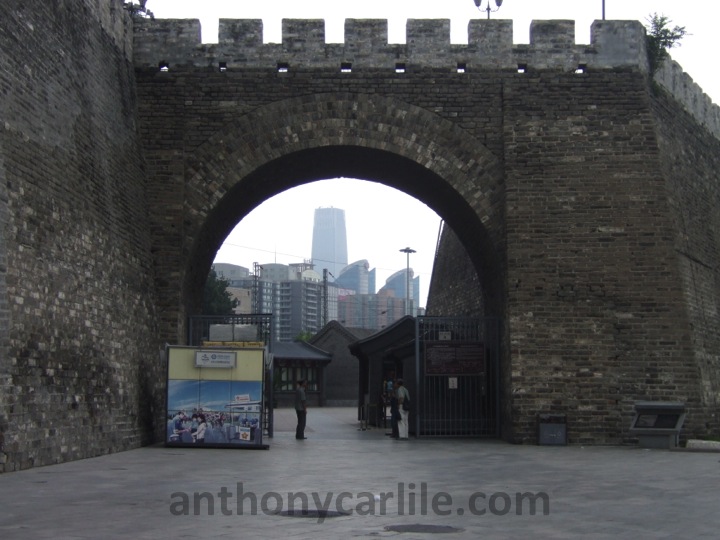
Entrance to the City Wall
Temple of Heaven
The Temple of Heaven is a large temple and very pleasant to walk around.

Temple of Heaven
One of the main reasons for visiting this temple is in order to make a wish on a sacred spot in the temple. You will easily be able to find this spot by the large queue next to it, or by looking for the disc shaped spot in the picture below.

Queue to make a wish
When it's your turn to make a wish, simply stand on the disc and make a wish, with your eyes open or closed. It's also not unreasonable to have your photo taken on this spot.

Me at The Temple of Heaven
Beijing Zoo
This is probably the only place you will see pandas in Beijing, so unless you have plans to visit Chengdu then Beijing Zoo is definitely worth a visit.

Entrance to Beijing Zoo
The zoo is quite large, and they do house a number of pandas.

Entrance to the Panda Enclosure
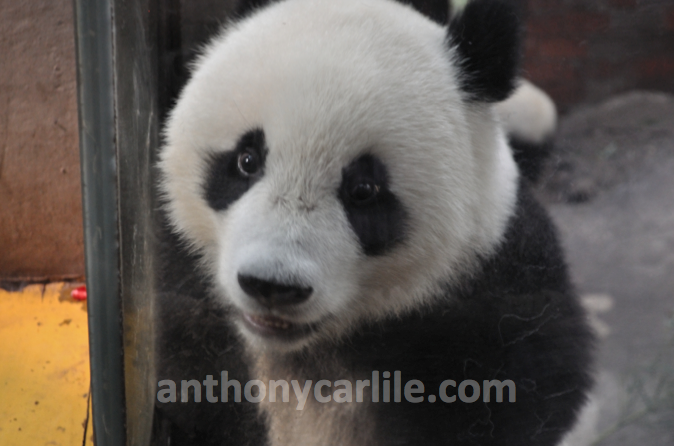
Panda
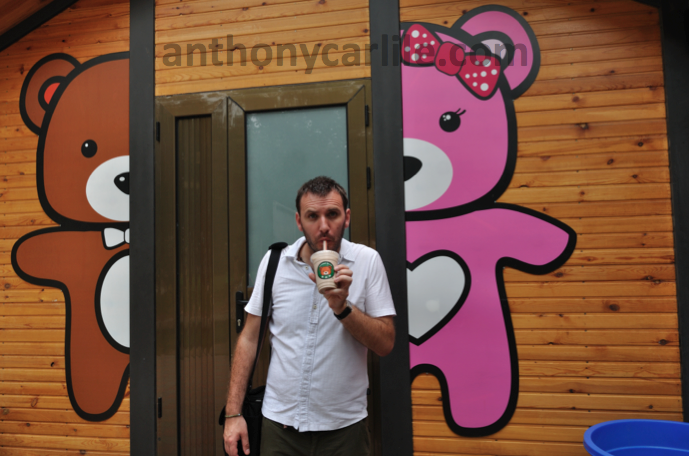
Me at Beijing Zoo
The Summer Palace
Another large and beautiful park in Beijing, the Summer Palace offers a little peace and quiet, and a stunning lake in the centre of the city.

Marble Boat at The Summer Palace

The Summer Palace

The Summer Palace
The Ming Tombs
Housing the remains of the Ming dynasty, this impressive complex is beautiful from the moment you get to the car park.

Entrance to The Ming Tombs
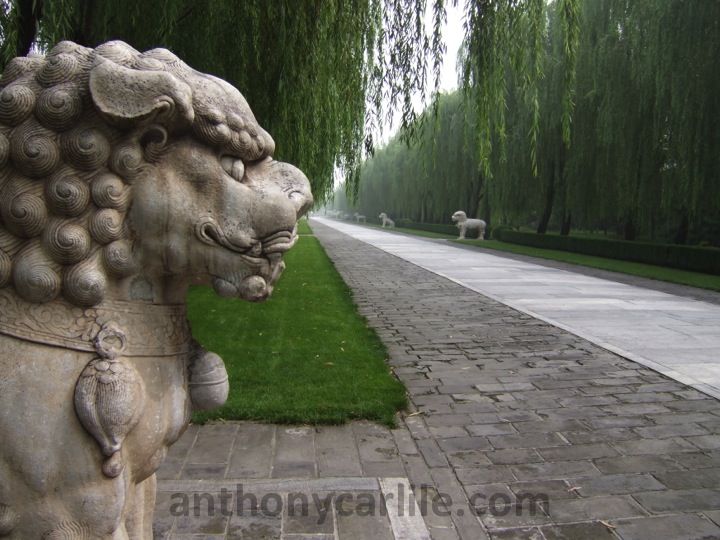
The Walk to the Ming Tombs

The Walk to the Ming Tombs

Inside The Ming Tombs
Inside the tombs are a series of chambers with various artefacts from the Ming Dynasty, including thrones (see the Emperor's throne above).
The Worker's Stadium
Home to the local football team (and one of the biggest in China) Beijing Guo, the Worker's Stadium is host to many sporting events, and if your team is touring China then chances are they will play here at some point.

Me at The Worker's Stadium
If you are watching an event here in the summer be careful, it can get incredibly humid in the stadium during a game, so make sure you bring plenty of fluids and maybe even a fan with you.
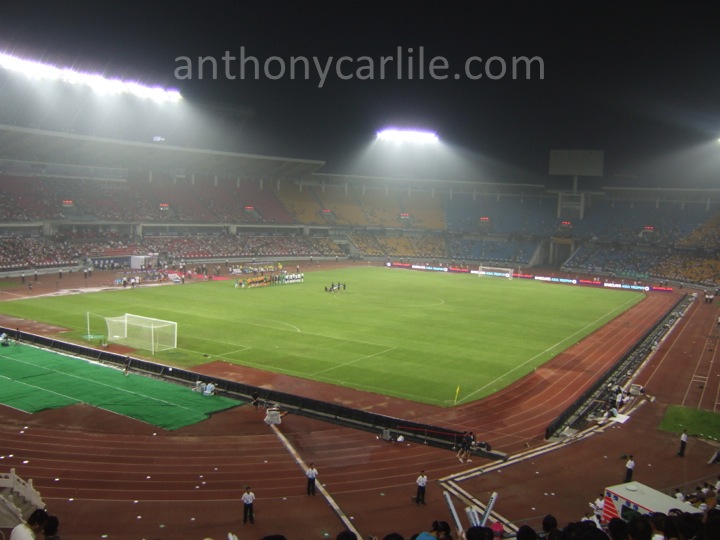
The Worker's Stadium
Beijing Tap Water Museum
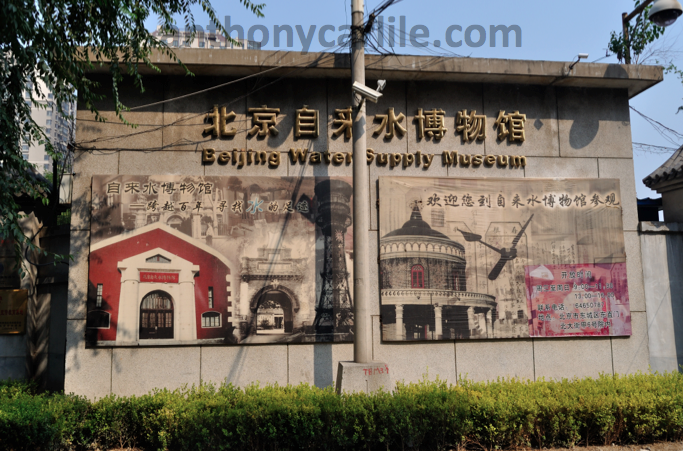
Entrance to the Beijing Tap Water Museum
Also known as the Beijing Water Works Museum and the Beijing Water Supply Museum, this tourist attraction is one of the more quirky places you will ever visit whilst travelling.
The museum often makes "weirdest places to visit in the world" lists, including number 1 on a CNN list, making it a more popular destination amongst travellers than you might expect.
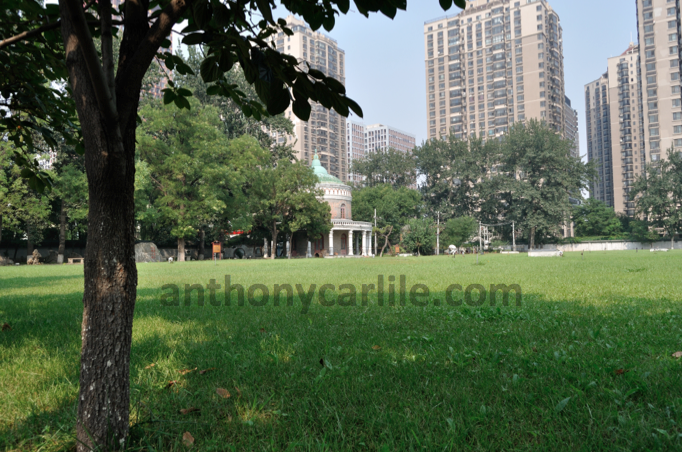
Inside the grounds of the Beijing Tap Water Museum
The museum's entrance is not easy to find, as the complex is inside an apartment block area, so make sure that you get yourself a good map (Google map will be enough) of the area before setting out.

The Beijing Tap Water Museum
Inside the museum itself you will find a surprisingly modern looking display, with a large collection of information about the history of drinking water in Beijing, and information about the current drinking water supply of both Beijing and China.
Beijing Botanical Gardens
A short drive (or slightly longer bus) will take you to this peaceful and beautiful setting, which feels far away from the bustling heat of Beijing city.

Map of the Beijing Botanical Gardens

Beijing Botanical Gardens
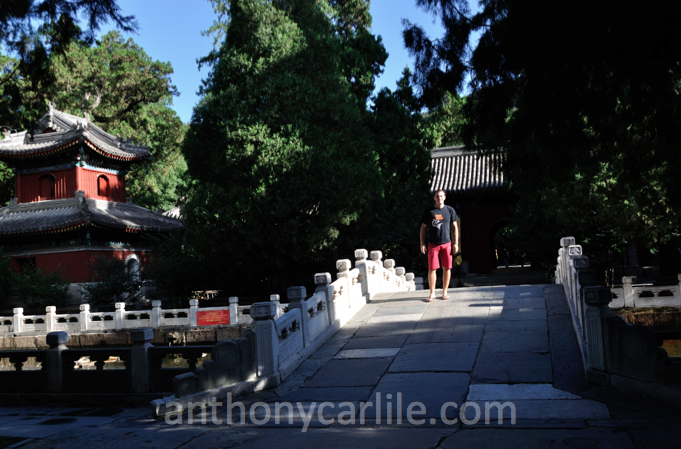
Me in the Beijing Botanical Gardens
The main reason a lot of the locals visit the gardens is to visit Wofo Temple (which incurs a small additional entrance fee). The temple is located within the grounds of the gardens, and is famous for its bronze statue of the sleeping Buddha (most Buddha statues are sitting down).

Wofo Temple in the Beijing Botanical Gardens
Beihai Park
Literally across the road from Ho Hai Park, Beihai is one of the largest Imperial gardens in Beijing. With it's stunningly beautiful lake and large gardens, you can easily spend hours here enjoying the peace and tranquility that Beihai provides.

Beihai Park

Beihai Park

Beihai Park

Beihai Park Lake

Beihai Park
National Museum of China
Located at the side of Tiananmen Square, the National Museum of China is a large museum consisting of 2 sections: Ancient China, and the Rejuvenation of China. These used to be 2 separate museums, but have now been converted into one.
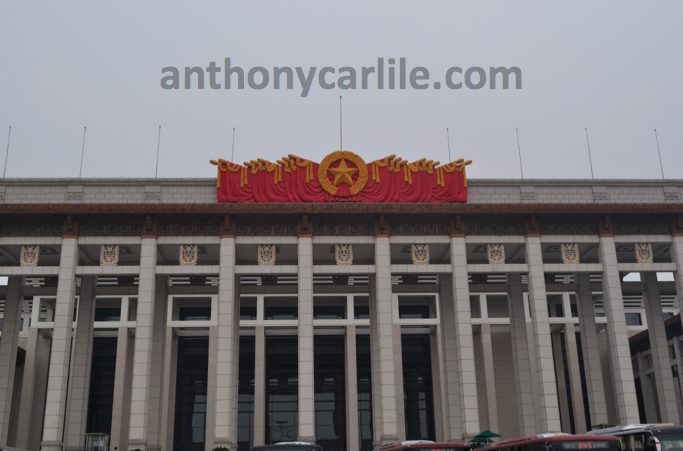
Entrance to the National Museum of China
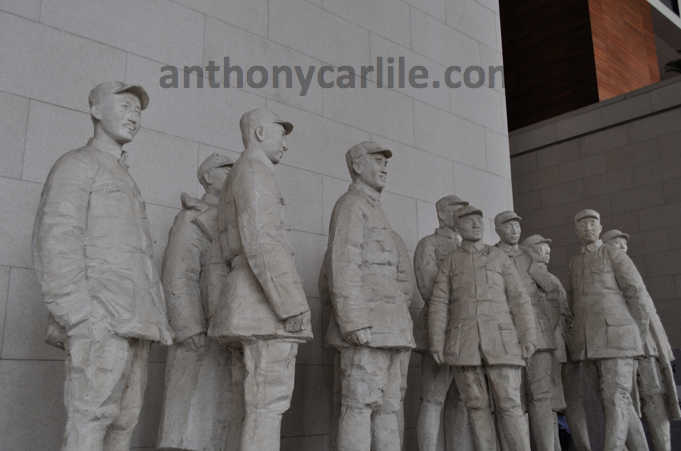
The National Museum of China

The National Museum of China
The museum is free to get into, but you will need your passport in order to be issued a ticket. Also, they only realise a few thousand tickets a day, so get there fairly early if you don't want to be disappointed.

The National Museum of China
Sanlitun Village
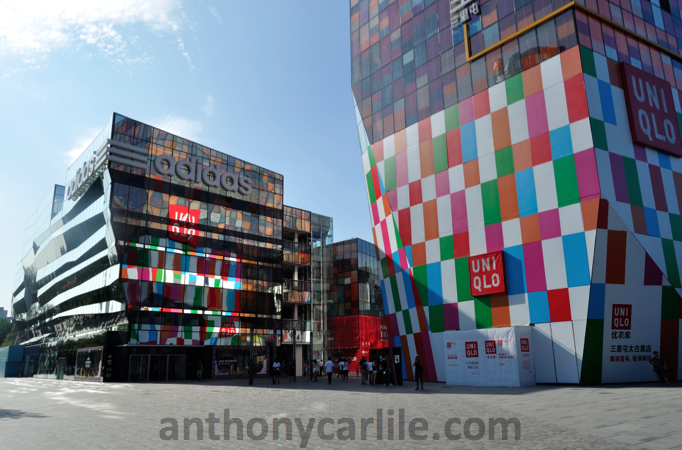
Sanlitun Village
Sanlitun Village is one of the main areas in Beijing where you will find many Westerners. It is a hub of shops for expensive brands, restaurants and bars offering cheap alcohol, attracting large numbers of foreigners to the area, as well as locals wanting to interact with foreigners.
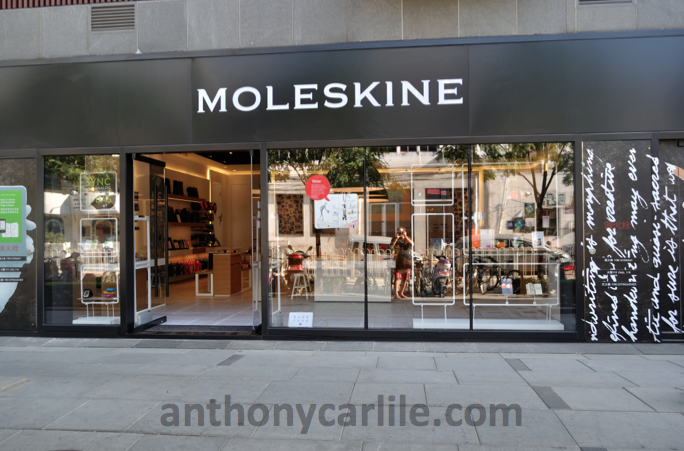
Moleskin store at Sanlitun Village
Wang Fu Jing Street

Wang Fu Jing Street
If you have ever wanted to eat snake, meal worm, lambs testicles, spider or anything else a little bit different, then this street is definitely worth a visit during your time in China.
Every evening thousands of tourists make there way here, and walk round the hundreds of stalls with pretty much every kind of food you can imagine on offer. They also offer normal food such as chicken, but you can also order fried ice cream on toast!

Spiders and meal worms on offer

Fried Ice Cream on Toast

Me eating squid on Wang Fu Jing Street
Chinese Ethnic Culture Park
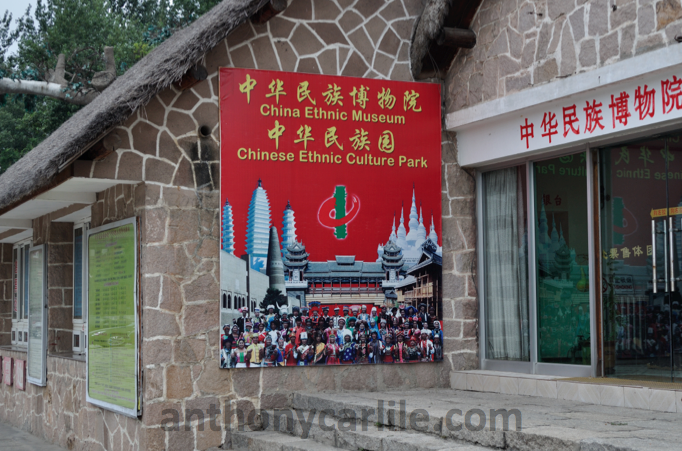
Entrance to the Chinese Ethnic Culture Park
Situated just behind the Olympic Park, the Chinese Ethnic Culture Park is a huge complex with examples of every culture that makes up Chinese society. At 90 Kuai a ticket it is possibly the most expensive tourist attraction in Beijing (if not China), but the size of the park means that you can easily be kept occupied for a whole day.

Chinese Ethnic Culture Park
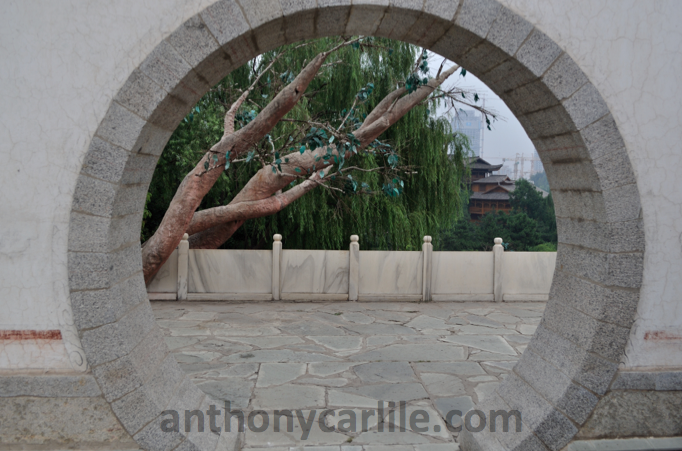
Chinese Ethnic Culture Park
Walking round the park you will find lakes, bridges, pagodas, temples, and examples of buildings from every culture within Chinese society.
During peak times there are also shows on showing the singing, dancing and other traditions of the various cultures.

Chinese Ethnic Culture Park
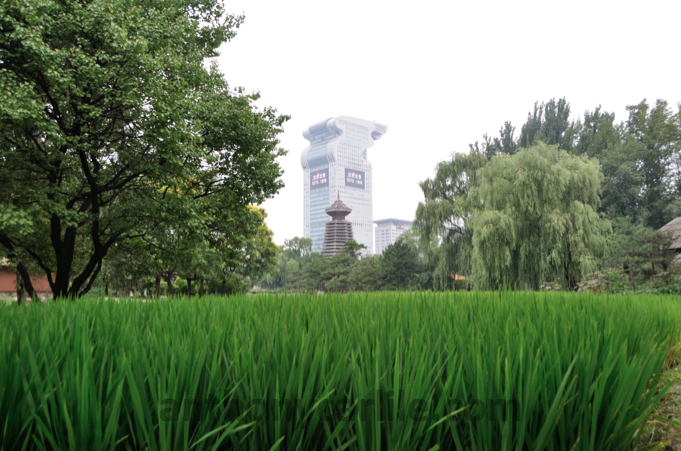
Chinese Ethnic Culture Park
Anthony Carlile
